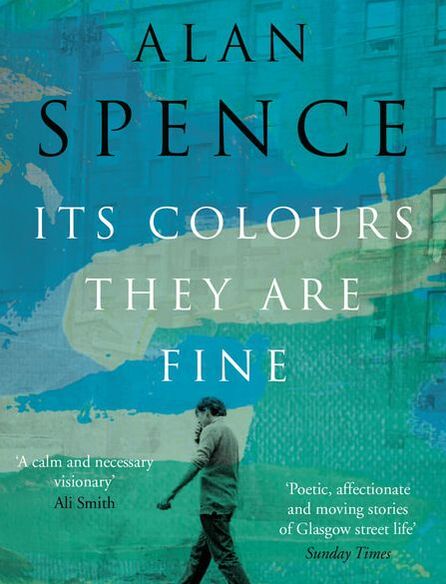|
I haven’t come across nearly as many novels set in Glasgow as I would like, certainly not enough without gangsters, so when I found Alan Spence’s collection of short stories Its Colours They Are Fine I marched straight to the till along with the other in the buy one get one free offer. I’m not sure if this or the other book was the free one, but if it was this it’s probably the best free thing I’ve ever got. It was so immediately recognisable to me, the stories not just set in Glasgow, but Govan from where half my family hails. Admittedly it wasn’t my Glasgow, being published in 1977, but the one told to me in so many fond memories from my father and grandfather. Yet though the city has undergone a huge transformation in the last forty years, the people and the humour that makes them so iconically Glaswegian hasn’t dated at all. (The one thing that has markedly changed is sectarianism. Though newspaper headlines may proclaim otherwise, it is significantly better today and I was astonished how prevalent it was back then. Spence doesn’t defend it or use it to condemn his characters, he merely portrays it as I assume it was at the time.) The stories he chooses to tell are restricted to those of tiny moments, like an elderly woman trapped in her flat with a broken lift, a boy and his mother putting up Christmas decorations, or of low-key yet deeply personal occasions, like a wedding or Hogmanay. Through the choice of those stories and how the characters think you know them instantly and will have someone in your own life to picture as you read. They aren’t complicated characters, most primarily concerned with getting by (or how Rangers are performing), but within the space of a few pages they are brought to life, letting you share their hopes and fears. They are all working class, but unlike much other media which chooses to fetishise poverty and the hardness of being working class, the characters in Its Colours are joyful and mostly optimistic, savouring the goodness in their lives and in their relationships with those around them. Yes, there is also violence and sadness, but they don’t choose to wallow, their outlook always for the positives and for that you connect with them all the more.
Spence’s ear for dialogue is incredible, and somehow manages to capture the Glaswegian tongue on the page with all its impenetrable charm and warmth. It may take a while to read, being so unused to seeing the dialect on the page, but once you do it is almost verbatim the conversations you hear around the city. This sits alongside his beautiful prose that manages to say so much with so little. Small turns of phrase so familiar that a few words are enough to place you in the world of the character and their surrounds. As an aside to contrast this, I was recently published in a short story and poetry anthology (cheeky plug) and it was jarring how many modern writers were using slang and swearing in their descriptions and scene settings. To me this made the narration much harsher, and meant the characters themselves lost some of their idiosyncrasy since their speech didn’t stand out amongst the rest of the text. There are fourteen stories set across three parts. They are largely independent, only a few characters crossing over in early stories, but they are grouped around in turn childhood, adulthood and a more autobiographical final part. This does create a thematic grouping, progressing from children playing on the street and making mischief to unemployed men signing on, the innocence of youth long vanished. The final three shorts are less narrative focussed on more stream of conscious musings from Spence and are the first to leave Glasgow, as the option of escape and new opportunities arrive. Spence, also famous for poetry and plays (indeed he’s had two spells as the Scottish Makar) has long moved on from Glasgow, through places like London and New York, and now runs the Sri Chinmoy Centre in Edinburgh, associated with meditation and the eastern culture he took such an interest in for much of his life (he also has a book Glasgow Zen, a collection of haikus in his native Glaswegian). But there will always be this image of Glasgow, captured in 14 short stories, that paints my city in its finest colours.
0 Comments
|
Archives
June 2020
Categories |

 RSS Feed
RSS Feed
